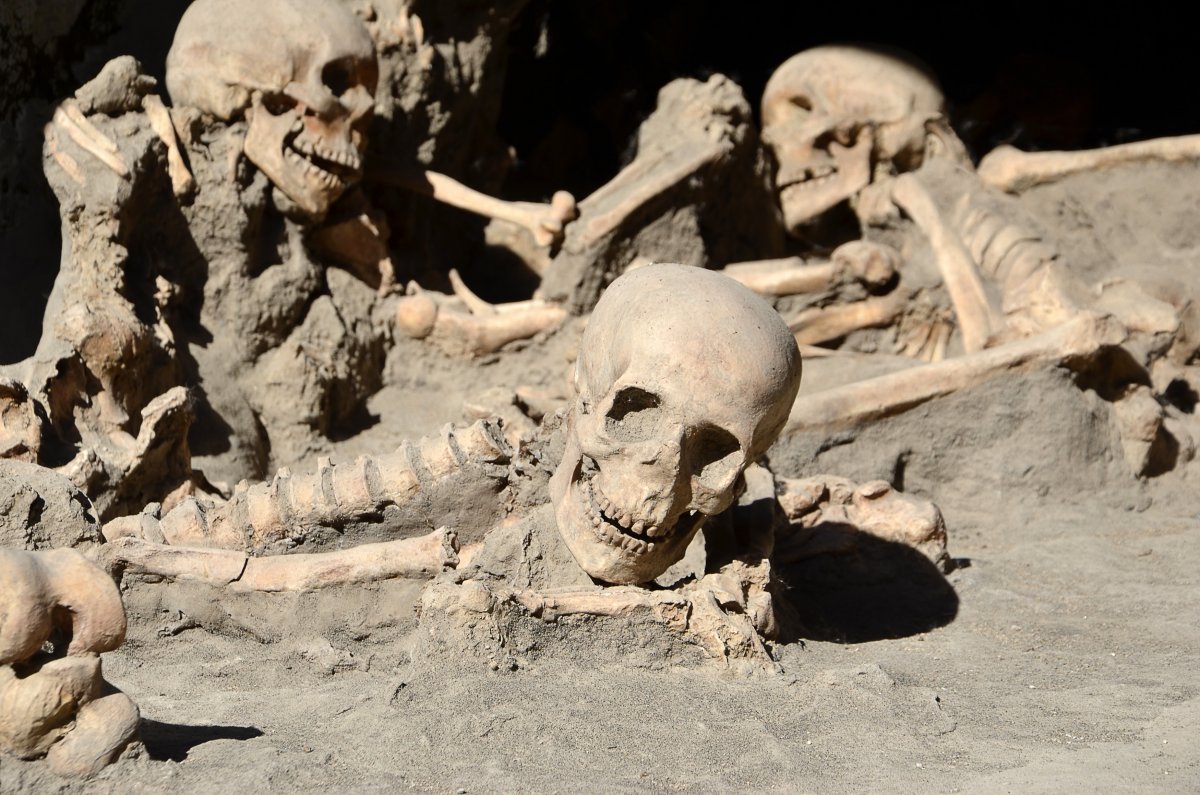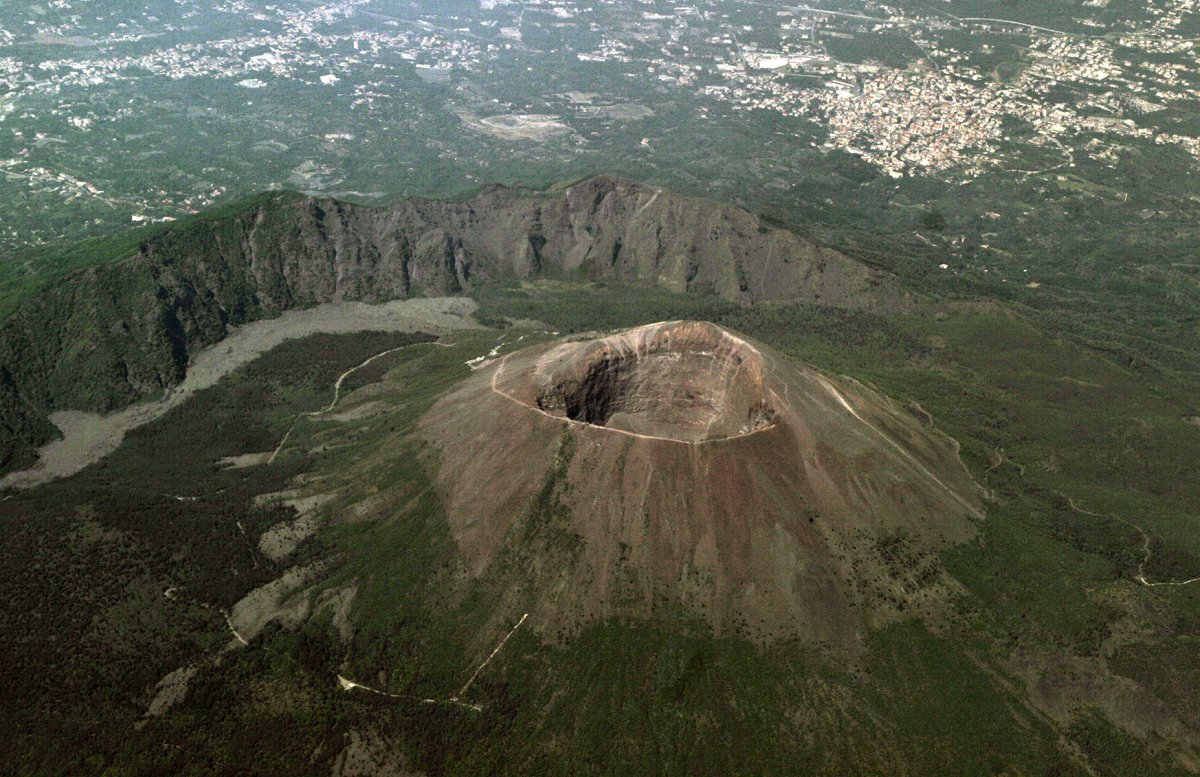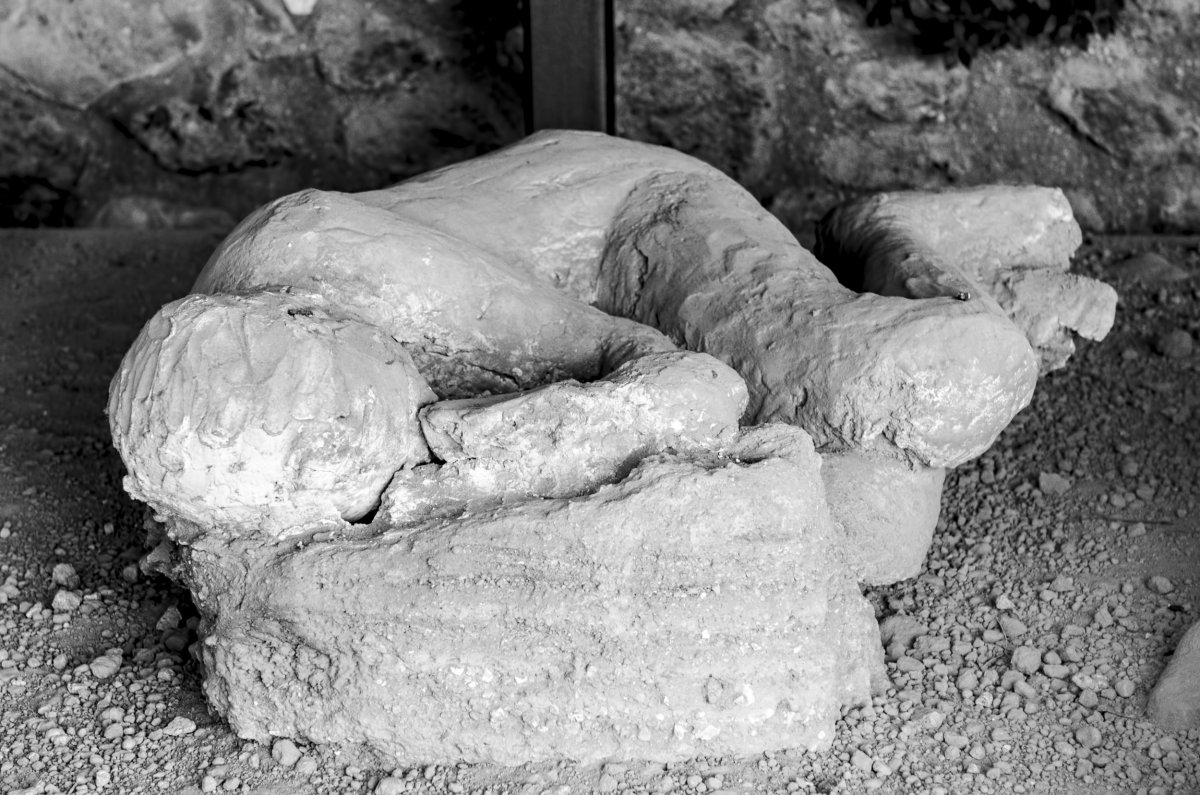The Herculaneum victims of the eruption of Mount Vesuvius in 79 AD were blasted with such extreme heat that their soft tissue disappeared, scientists have discovered.
In a paper released May 27, scientists have revealed more details of the eruption that destroyed Pompeii. Pier Paolo Petrone, a forensic anthropologist at the University Federico II of Naples, Italy, and co-author Francesco Sirano, director of the Herculaneum Archaeological Site, have discovered that bone proteins from skeletons found in Herculaneum were better preserved than those in the bodies found in Pompeii.

The eruption of Mount Vesuvius in 79 AD was one of the deadliest volcanic eruptions in history. Several unlucky nearby cities, including Pompeii and Herculaneum, were buried beneath extremely hot pyroclastic flows and ashfall. The remains of the inhabitants are famously well-preserved, with their final moments being frozen in time by the unique conditions that preserved their bodies for thousands of years.
Herculaneum, which was located just three miles from Mount Vesuvius, is thought to have experienced temperatures much higher than were present in Pompeii, twice as far away.

Petrone told Newsweek: "In a previous study, authors hypothesized that temperatures at Herculaneum were low since they found some collagen in sporadic bone remains. Now, the new results clearly show that the suggestion that low temperatures correspond to good proteome quality, while high temperatures are associated with degraded organic matter, does not fit with the new evidence highlighted in the victims' bones from Herculaneum and Pompeii."
Collagen and other bone proteins do not generally survive extreme heat exposure, not to mention the action of microbes over long periods of time, soil acidity, and changes in moisture; all factors that can have adverse effects on the preservation of organic matter hidden in bone.
However, the specimens from Pompeii show a lower content of non-collagenous proteins, higher deamidation level and higher extent of collagen modification, despite being exposed to a lower temperature.
"This indicates that in the case of the 79 AD eruption, organic matter preservation is independent from the intensity of heat, while it has been largely influenced by different ways of soft tissue decay (very fast or extremely slow), and chemical-physical (degree of basicity-acidity of soils,) as well as hydrogeological (constant or periodic moist environment) properties of the volcanic ash deposits in which the corpses were buried," Petrone told Newsweek.
In Pompeii, the slow decomposition of corpses' soft tissues in the natural dry-wet hydrogeological soil cycles damaged their bone proteome more than what was experienced at Herculaneum.
The rapid vanishing of body tissues due to the intense heat in Herculaneum and the resulting bones being buried in an environment permanently waterlogged with groundwater inhibited the destructive action of microbes.

Conversely, the corpses of the victims in Pompeii stayed intact, allowing cavities to form around the skeleton as a result of the slow decomposition of soft tissue, which were filled with plaster to make plaster casts 2,000 years later. The exposure to extreme heat in Herculaneum resulted in the rapid disappearance of body flesh and its replacement with hot ash, so no cavities were formed and no cast of their bodies could be obtained.
Petrone hopes that these findings may have important spin-offs in both bio-archaeology and forensics. These and other ongoing studies demonstrate the value of multidisciplinary investigations and the uniqueness of the sites buried by the 79 AD eruption.
Uncommon Knowledge
Newsweek is committed to challenging conventional wisdom and finding connections in the search for common ground.
Newsweek is committed to challenging conventional wisdom and finding connections in the search for common ground.
About the writer
Jess Thomson is a Newsweek Science Reporter based in London UK. Her focus is reporting on science, technology and healthcare. ... Read more
To read how Newsweek uses AI as a newsroom tool, Click here.








